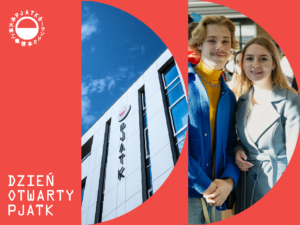Open Day PJAIT on September 6!

The project aims to address the growing problem of disinformation in the digital age, with a particular focus on its impact on democratic values and academia. Through the use of digital tools and innovative teaching methods, the consortium aims to assist EU citizens, especially students, in effectively detecting and countering disinformation.
The world of technology is inextricably linked to information. Often repeated misinformation exacerbates fear among the public and perpetuates false beliefs, which can often lead to disastrous social consequences.
At least three different types of unreliable Web content have been identified:
1) disinformation (false, intentionally harmful),
2) misinformation (erroneous, but without harmful intent),
3) malinformation (true, but used in a harmful way).
Unreliable content includes conspiracy theories, rumors and fake news, but also propaganda and disinformation from various countries used for political purposes or information warfare. It has been found that much unreliable content is specifically designed to make it difficult or impossible to verify. Creators of unreliable content rely on probability rather than verifiability, and appeal to emotions and the pursuit of sensationalism.
The main objectives include raising awareness in the area of the spread of false information and strengthening practical skills for detecting disinformation. Through the development of a course on verifying the credibility of information and an Artificial Intelligence-supported Disinformation Detection Service, the project aims to integrate the aforementioned skills into educational curricula. The result is to enable individuals to make informed, fact-based decisions in the real world.
In line with EU priorities for digital transformation and innovative teaching practices, the project addresses the need for practical training in media education and disinformation detection. By filling gaps in existing courses and integrating debunking methodologies, the project offers a comprehensive approach to combating disinformation.
The project will pioneer media literacy by providing an automated disinformation detection service, supported by artificial intelligence, for personalized learning. This innovative approach provides scalability and accessibility, enabling students to independently verify credibility assessments. By doing so, it will contribute to building a society resilient to disinformation and digital threats, promoting a secure digital environment and adherence to democratic values in the digital age.
Project title: Development and implementation of AI education methods and digital tools to support the fight against disinformation
Project number: 2023-2-PL01-KA220-HED-000180856
Consortium Leader: Science4People (S4P) spółka z ograniczoną odpowiedzialnością
Project partners:
University of Greater Tirnov (VTU) - Bulgaria,
Open University of Cyprus (OUC) - Cyprus,
Tampere University of Applied Sciences (TAMK) - Finland,
Polish-Japanese Academy of Information Technology (PJAIT) - Poland
Project implementation period: 01.04.2024 - 31.03.2027
Total budget: 400,000.00 euros
Funding source: Cooperation Partnership for Higher Education, ERASMUS+, Foundation for the Development of the Education System, Poland.
We use cookies to ensure the proper functioning of the website. We may also use cookies for analytical purposes in particular to match advertising content to your preferences. The use of analytical and functional cookies requires your consent. If you wish to accept all cookies, click "Accept all". If you do not consent to our use of non-essential cookies, click "Reject All." If you want to customize your consents, click "Manage cookies." Remember that you can withdraw any of your consents at any time by changing the settings you have chosen. For more information, see the Privacy Policy.
The use of cookies for the purposes indicated above is related to the processing of your personal data. For more information about our use of cookies and the processing of your personal data, including your rights, please see our Privacy Policy.
Below you can manage your preferences regarding the installation of analytical cookies on your device in connection with the use of our website. You can also review and learn which cookies are installed. For more information about the processing of your personal data and your rights, please see our Privacy Policy.
These cookies are essential to the operation of the site and cannot be disabled on our systems. They are usually set only in response to actions you perform that constitute a service request, such as setting privacy preferences, logging in or filling out forms. You can set your browser to block or alert you to these cookies, but some parts of the site will then not work. These cookies do not store any personally identifiable information.
These cookies allow us to count visits and traffic sources so we can measure and improve the performance of our site. They help us find out which pages are the most and which are the least popular and see how a visitor moves around the site. All information collected by these cookies is anonymous. If you don't allow these cookies, we won't know when you visited our site and won't be able to monitor its performance.
Files may be used by our Trusted Partners to track Users on websites. The purpose is to display ads tailored to the preferences of individual Users.
